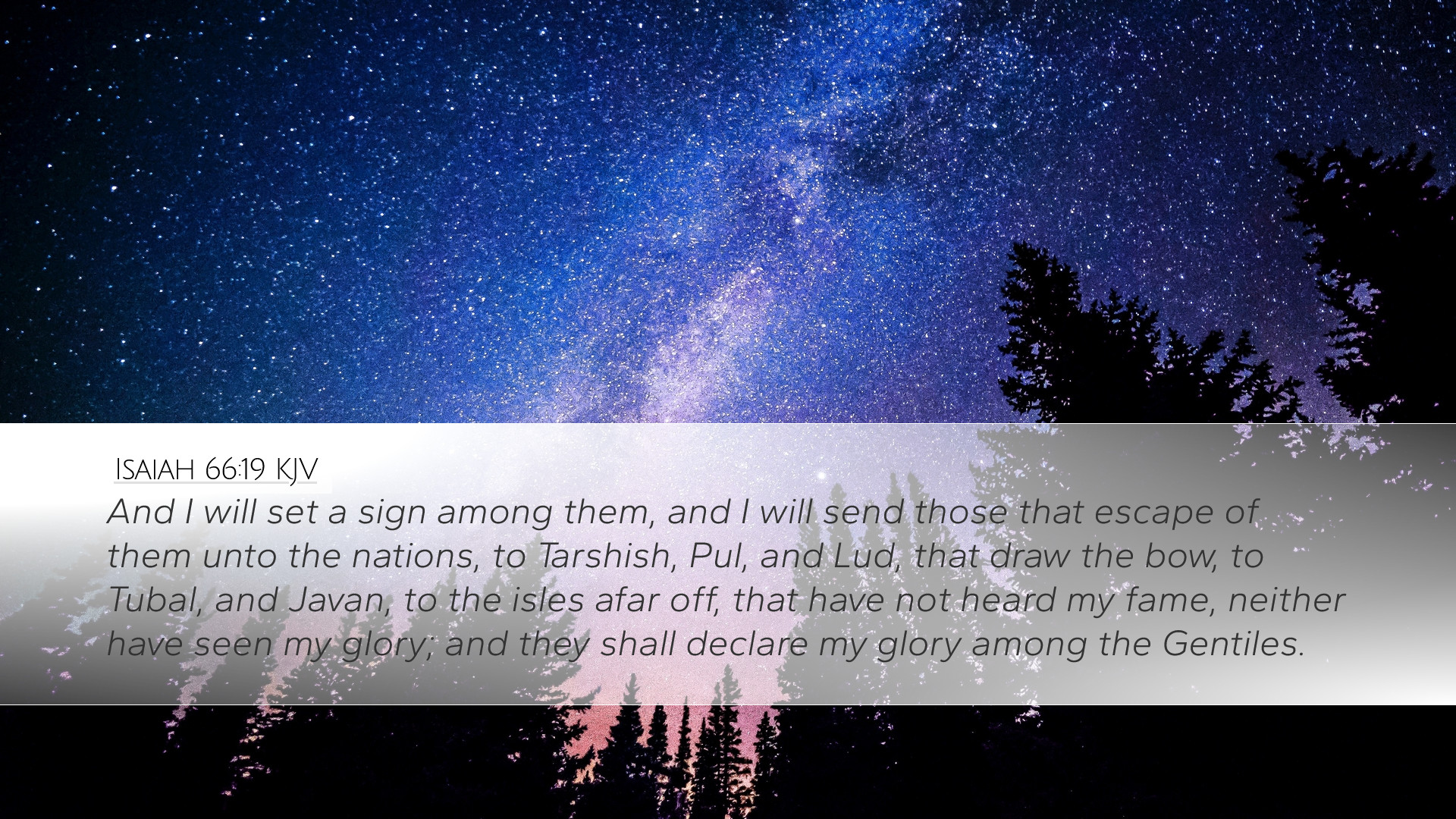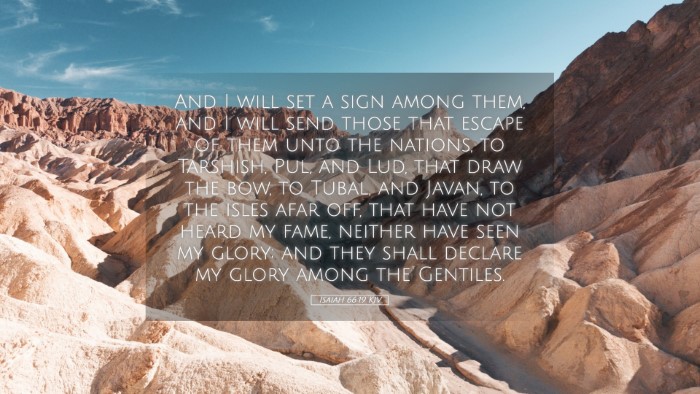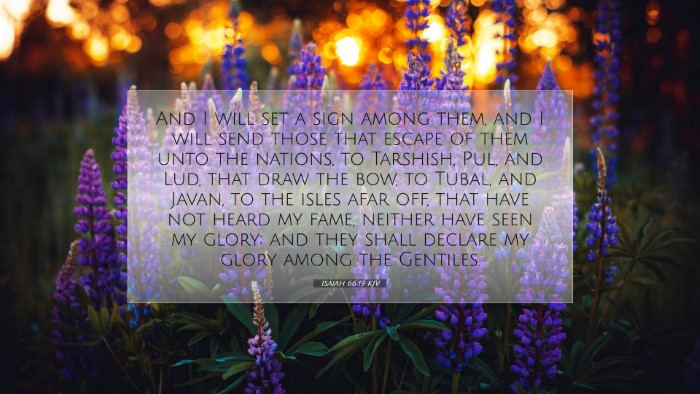Commentary on Isaiah 66:19
Isaiah 66:19 states: "And I will set a sign among them, and I will send those who escape of them to the nations, to Tarshish, Pul, and Lud, who draw the bow, to Tubal and Javan, to the coastlands afar off, who have not heard My fame nor seen My glory. And they shall declare My glory among the Gentiles." This verse encapsulates a profound declaration of God’s intent to reach out to the nations, highlighting themes of mission, redemption, and the global scope of God’s glory.
Contextual Analysis
The broader context of Isaiah 66 deals with the final restoration of Israel and the establishment of God's kingdom. In this concluding chapter, the prophet Isaiah emphasizes God's sovereignty and His ultimate plan for all nations, which can be interpreted as a fulfillment of the Abrahamic promise that through Abraham's seed all nations would be blessed (Genesis 12:3).
Key Themes
- The Sign Among the Nations: The verse begins with the phrase "I will set a sign among them." This indicates a divine act, a miraculous sign that will serve to gather those who are to be sent out to the nations. Matthew Henry suggests this sign represents both a manifestation of God's power and a heralding of the gospel’s spread.
- The Global Mission: The regions mentioned—Tarshish, Pul, Lud, Tubal, and Javan—represent a broad geographical range, signifying that the mission is not restricted to Israel or even the surrounding nations but extends to distant lands. Clarke emphasizes that the inclusion of the "coastlands afar off" affirms God’s universal approach to salvation.
- Declaration of God's Glory: There is a clear mission statement embedded in the verse: "they shall declare My glory among the Gentiles." This task entrusted to the exiles and later the apostles is pivotal. Barnes comments on the responsibility placed on God’s people to witness and proclaim His greatness, fulfilling their role as light to the nations.
Theological Implications
The implications of this verse reach deep into both Old and New Testament theology. It reinforces the idea that God’s redemptive plan transcends ethnic and geographical boundaries. Several key theological points arise from this passage:
- God's Sovereignty: The assertion that God will initiate these actions underscores His sovereign will in bringing about His purposes through His people. Henry implies this emphasizes God's control over both history and individual destinies.
- Inclusivity of the Gospel: The call to declare God's glory among the Gentiles prefigures the Great Commission (Matthew 28:19), where Jesus commands His followers to make disciples of all nations. Adam Clarke notes the continuity of God's mission from Israel to the church, highlighting a theological thread that runs through scripture.
- Hope for Redemption: The verse offers a glimmer of hope, showing that those who escape destruction are not simply saved for themselves but are chosen to bear witness of God's glory. This notion of being witnesses is a powerful one, as it brings a sense of purpose to the believer's experience of salvation.
Practical Applications
For pastors, students, theologians, and scholars, this text opens several avenues for practical application:
- Missions and Evangelism: This verse encourages the church to engage deeply with missions, recognizing that God has a plan for all nations. It challenges believers to consider their role in global evangelism, ensuring that the message of Christ is shared widely.
- Witnessing God's Glory: Engage in practices that declare God's glory in personal and communal settings. This may involve integrating worship, testimonies, and acts of service as manifestations of His glory.
- Cultural Sensitivity: As believers share God's message, they must do so with an understanding of different cultures, just as the various nations cited in Isaiah were distinct in their identities. This can enhance the effectiveness of ministry.
Conclusion
Isaiah 66:19 serves as a profound reminder of God’s overarching mission for redemption, extending beyond Israel to embrace the entire world. Through public domain commentaries, we glean insights that enrich our understanding of the text and remind us of the responsibility and privilege of proclaiming God’s glory to all peoples. This invitation to participate in God’s mission should inspire and mobilize believers to be active agents of His love and truth in a world that desperately needs to encounter Him.


